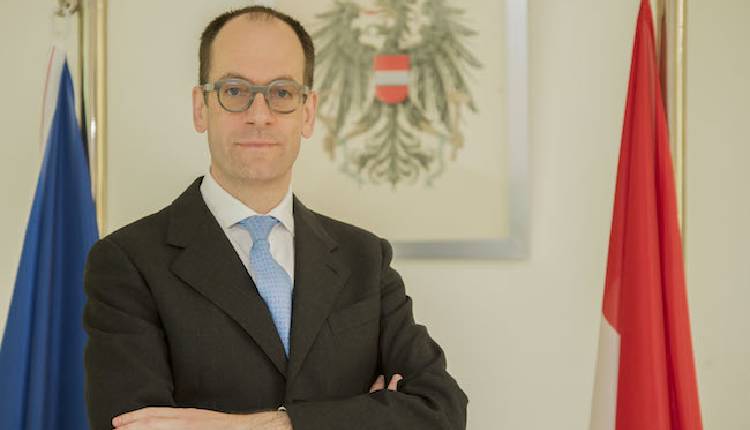Egypt and Austria have maintained a strong relationship over the years, which is also reflected in their robust economic ties, with a special focus on green hydrogen, a clean and renewable energy source that could transform the region’s energy landscape.
Austrian companies are active in various sectors, including renewable energy in addition to the railway and water sectors, services, and machinery, the Austrian ambassador to Egypt, Mr. Georg Pöstinger, said in an interview with Amwal Al Ghad English.
There are about 500 Austrian companies that regularly conduct business in Egypt, offering various trades and services in sectors such as solar energy, electricity generation, and railroads. These companies have contributed to Egypt’s development and modernisation, as well as its efforts to reduce greenhouse gas emissions, according to Austrian Commercial Attache, Mr. Georg Krenn.
Krenn told Amwal Al-Ghad English that he was optimistic about the participation of Austrian companies in future initiatives related to green hydrogen. These firms, mainly SMEs, express interest but do not take on the role of main contractors or project owners. Instead, they supply advanced technology and serve as subcontractors for large-scale projects.
Additionally, he said that Austrian businesses are ready to provide software and pumps, among other necessary technologies. High-quality solar modules are the specialty of several Austrian businesses, such as Building Integrated Photovoltaics (BIPV). He added that one of the companies has provided these solar panels to a CIB subsidiary. According to Krenn, the concept is extremely intriguing because photovoltaics make up the majority of the building’s surface.
He further said that Austrian companies supply the gas turbines in the New Administrative Capital (NAC) for the Siemens power plant. Although Siemens leads the project, the turbines themselves originate from Austria.
Moreover, Krenn explained that Austria monitors its firms’ performance in Egypt closely, and the impact of Egypt’s policies on Austrian businesses is quickly noted within their network. Despite currency-related challenges, positive developments like modernization and expanded virtual services at GAFI are well-received, he added.
Indeed, policies alone are not as strong of an endorsement as the successes of Austrian investments in Egypt, such as the railway sector initiative. If it is successful, Krenn continued, it may encourage further investments from Austria, a tendency currently evident in the megaprojects in the new capital.
Ambassador Pöstinger highlighted the importance of experience, trust, and reliability. Austrian companies are valued in the Middle East for their collaborative approach and adaptability to Egypt’s needs, fostering a trustful relationship beneficial for business.
Growing Trade
In 2022, Austrian exports to Egypt totaled €253.5 million, experiencing a slight decline of 0.3 per cent from the previous year, according to statistics from the embassy.
Conversely, Egyptian exports to Austria surged to €125 million, marking a substantial growth of 79 per cent. This shift highlights Egypt’s strengthening position as an exporter.
Additionally, despite fluctuations, the overall trend is positive, with Austrian exports expected to have grown by 20 per cent in 2023 (based on data up to Q3). The bilateral trade relationship continues to evolve, benefiting both countries through increased commerce and co-operation, he added.
Ambassador Pöstinger acknowledged the difficulty some companies face in acquiring hard currency, which complicates international payments. However, the collaboration continues to be productive and positive, he affirmed.


